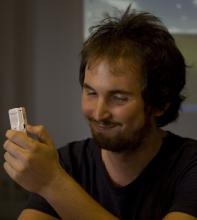What Is Oral History?
Oral history is a methodology that emerged particularly since the 1960s, and which focuses on the importance to the writing of history of life story narratives of individuals based on memory. History writing based on archival research has been enriched by this attention to ordinary people, everyday life and subjectivity supported by the development of voice recording technologies.
The goal of oral history is to create an archive by recording individuals’ life story narratives using audio or video. Depending on the research interests of the oral historian, this archive constitutes the basis for products written about a particular historical event or topic. An individual, family, community, neighborhood or region may be the focus of oral history research. Until relatively recently, oral history archives mostly included voice recordings which were used to produce written texts. Today, new technologies make it possible to create myriad multimedia products. Debates on poststructuralism brought issues such as identity, narrative, memory and subjectivity to the fore, leading, along with the emergence of new technologies, to great interest in oral history in recent decades.
While oral history research is relatively new in Turkey, there is great potential. Recent interest in popular culture and academia in individual testimony and oral history methodology is linked to Turkey’s painful experience with democratization and the need to come to terms with the country’s multicultural past. With its focus on the subjectivities of ordinary people, oral history can contribute to current debates on cultural identity and democratization whether in academia or in the public sphere. Family history, village and neighborhood history are increasingly studied using oral history, making possible the writing of the history of everyday life. In addition to their contribution to social science research, such projects can also be transformative within the politics of everyday life.

